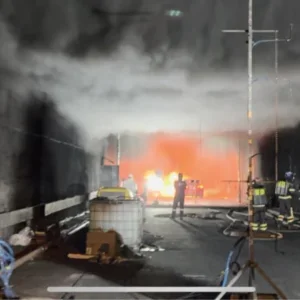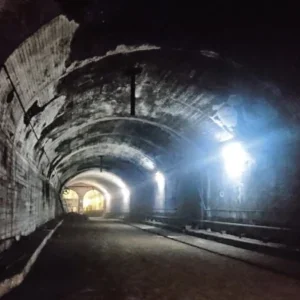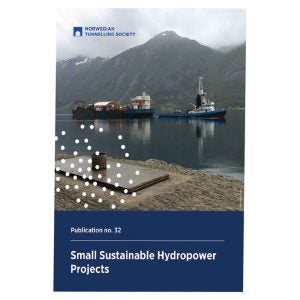Whatever one’s views on the validity of recent Europe-wide protests about the high price of transport fuel, there is no doubt that important points in the transport infrastructure have become foci of protest, both peaceful, and obstructive with doubtful legality.
Tunnels lying across major physical barriers such as sea passages, major rivers and mountain ranges (the Channel and Alps as examples) have been clear targets for such protests, especially when there are few nearby alternatives. With the increase in direct public action facilitated by rapid, far-ranging organisation via the improved communications of the internet, there is likely to be a greater incidence of blockades, picketing and general protest at these critical transport facilities.
Some tunnels have been designed with the possibility of terrorist action in mind, and of course few details of the non-obvious precautions are available. It is doubtful whether the implications of more peaceful protest have been taken into consideration in the design of structural and operating systems associated with tunnels and other crossing points. It is true that the operational authorities have learnt by experience in some cases. The frequent blockades of Channel ports, and sometimes the Channel Tunnel itself, by French farmers, fishermen, and any other group which feels itself agrieved have led Kent police into well practiced traffic handling routines. Despite construction work for the Channel Tunnel Rail Link, non-truck traffic is directed round old routes whilst the M20 motorway is used as a massive truck-park for the long-suffering ‘routiers’.
So, what of possible solutions? First there must be a will to prevent protests blocking crossings, and that has been usualy absent in France. Next there could be better facilities, perhaps underground, for handling diverted and delayed traffic. Perhaps there could be some improvements to the approach routes to major crossings with alternatives in case of smaller blockades. However, there is little that can be done to dodge large, well-organised protest groups.
The alleged cause of the Channel Tunnel fire showed what could happen if things get out of hand, and it could have been much worse as other tunnel fires have shown. There is nothing wrong with legitimate protest, especially when there is an important point to make to hard-of-hearing governments, but peaceful protest can often be highjacked by less responsible groups.
Tunnel and transport engineers, and others, need to be aware of this danger to operator profits and safety, designing for it along with all the other hazards.






